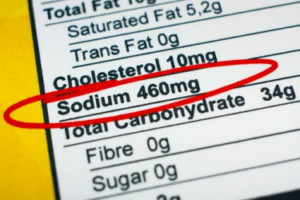Lifestyle choices, like exercise, diet, alcohol intake, and tobacco, significantly affect your heart health. So when you visit a doctor for heart problems, one of the first things they recommend is to avoid foods that clog arteries and increase daily physical activity.
When you change your diet and cut out the worst foods for your heart, you can prevent and help treat heart and vascular diseases like Peripheral Arterial Disease (PAD), Deep Vein Thrombosis (DVT), Chronic Venous Insufficiency (CVI), varicose veins, and more.
If you’re concerned about your vascular health, contact us at Vein Solutions to schedule a consultation with one of our highly experienced physicians.
What Causes Heart Disease?
Several risk factors can lead to heart disease like:
- Obesity
- Lack of exercise
- Poor diet
- Type 2 diabets
These factors lead to inflammation, poor cholesterol levels, and insulin resistance, damaging arteries and restricting blood flow. Poor blood flow and damaged arteries put you at a high risk of developing heart disease.
Additionally, if you have a family history of heart and vein disease, you are at a higher risk of developing it yourself.
Why is Nutrition Important for Vein and Heart Health?
Nutrition is vital for heart and vein health, as certain foods can cause inflammation in the body, worsening heart or vein-related conditions. Since cholesterol levels, blood pressure, and weight are all connected, it makes sense that the food we eat impacts those areas too. Knowing this, it’s important to ensure you’re getting the right nutrients to keep all levels and weight in a healthy range for your age.
Why Some Foods Are Bad for Your Heart
A poor diet increases your risk of heart disease because the ingredients in some foods negatively impact your heart and vein health. An excess of foods high in saturated fat, salt, and sugar all contribute to heart disorders because they can lead to inflammation, plaque build-up, and damaged arteries. Subsequently, these unhealthy foods disrupt blood flow and increase blood pressure, leading to heart disease.
First, inflammation in the arteries constricts blood flow, which prevents blood vessels from carrying nutrients to the heart and parts of the body.
Similarly, poor levels of bad cholesterol (small dense LDL (sdLDL) and oxidized LDL)—can cause plaque build-up in the arteries and form clots that restrict blood flow.
Lastly, insulin’s job is to help control blood glucose, or blood sugar, levels. When insulin resistance occurs, the muscles, liver, and fat cells respond abnormally to the hormone. As a result, glucose cannot enter your cells easily and can therefore damage arteries. Damaged arteries make it easier for cholesterol to enter the artery wall and slow blood flow.
To reduce inflammation, support healthy cholesterol, and fight insulin resistance, you must lower daily blood sugar levels by regular exercise and eating a nutritious diet low in refined carbs and saturated fats.
Below are the worst foods for your heart that you should avoid.
The Top 10 Foods Bad for Vascular and Heart Health
In moderation, these foods are ok. However, if you eat these multiple times a day, every day, then they can lead to a higher risk of heart disease, as they cause inflammation and excessive weight gain.
The main focused of a balanced diet aims to focus on nutrient-dense foods, and while staying within your recommended daily value (RDV) for fats, protein, carbs, and calories.
As a rule of thumb, for a heart-healthy diet, avoid . . .
- Salty foods
- Processed foods
- Refined sugar & refined carbs
- Saturated fat and trans fat
Keep reading for more specific foods to avoid for heart health from each category.
 1. Salty Foods
1. Salty Foods
First of all, sodium, not salt, negatively impacts your health.
Sodium increases blood pressure because it retains fluid and leads to swelling. Since sodium is primarily found in our blood, too much sodium draws excessive water into our bloodstream. The volume increase in our bloodstream pushes against blood vessel walls and causes high blood pressure.
However, salt is 40% sodium and 60% chloride. So, too much salt leads to high blood pressure. However, salt is 40% sodium and 60% chloride. So, too much salt leads to high blood pressure. One common food that leads to excessive salt intake is pizza, which contains a high sodium content. Pepperoni and meat lover’s pizza mainly have the most amount of sodium in contrast to a cheese pizza. But, both cheese and processed meats contain a higher amount of sodium than is recommended.
2. Fast Foods
Fast food, especially, is generally highly processed and high in sodium. Plus, most fast food options contain processed meats. So even “healthy” options at fast food chains can have a full day’s sodium.
3. Refined Sugars and Refined Carbs
Refined sugars and carbohydrates spike blood sugar levels, triggering an insulin surge. As a result, higher insulin levels can make you hungry and cause cravings, leading to overeating.
While, on its own, sugar does not clog arteries, the overeating it causes can lead to weight gain and poor cholesterol levels, which can clog arteries.
Additionally, refined sugar and carbs cause inflammation.
4. Baked Sweets (and Sweets like Candy)
Cookies, cakes, muffins, brownies, pies, other pastries, and sugary cereal fall under refined sugar. Not only do pastries and cereals contain white flour, a refined carb, but they also contain added sugar.
And, of course, candy is mostly sugar, so it’s best to limit candy consumption or swap it for sugar-free sweets, if needed.
5. Energy and Meal Replacement Bars
Even though energy bars and meal replacement bars are considered healthy and essential for people who regularly work out, they can be full of sugar. Often, the “energy”in energy bars comes from loads of sugar, competing with candy bars.
Before you grab an energy or meal replacement bar, read the nutrition label and look for the amount of sugar.
6. White Rice, Bread, and Pasta
Foods made with white flour and refined grains lack healthy natural fiber, vitamins, and minerals that occur naturally in whole grains. These refined carbs quickly convert to sugar, which the body stores as fat. If someone carries excess fat for a prolonged time, this can increase their chance to develop heart disease and even type 2 Diabetes.
7. Saturated Fat and Trans Fat Foods
Not all fat is terrible, but trans fats and saturated fats increase levels of harmful cholesterol in the bloodstream. Excess consumption of bad cholesterol can cause plaque build-up and form blockages in the arteries. Additionally, trans fats also lead to inflammation and insulin resistance.
8. Margarine and Butter
Tons of food items contain butter. From bread to meat, cooked vegetables to sauces, pasta to pastries, you can find traces of butter in almost anything. However, food with too much butter or margarine is high in saturated fat, which raises bad cholesterol.
But, as a general rule, the more processed the food—or fat—is, the worse it is for you. Flavored and full-fat yogurt
In addition to cooking fats like butter and margarine, yogurt can be high in saturated fat. Full-fat yogurt can be fine in moderation, like limiting it to one daily serving. But when choosing yogurt, avoid flavored yogurts full of added sugars.
9. Deep-fried foods
Fried foods and deep-fried foods are exceptionally high in trans fat, which raises bad cholesterol. These foods include fried chicken, french fries, chips, and fried snacks.
Not only are they high in trans fat, but they usually are also high in sodium and calories.
10. Canned soups, vegetables, sauces, and dressings
Canned foods, bottled sauces, and pre-packaged dressings often have added sugar and high sodium. One can of soup might have close to the recommended daily amount of sodium.
Always read nutrition labels and check for sodium, sugar, and trans fats.
Pay close attention to the number of servings in one package. Sometimes labels can be misleading and have three and a half servings per can.
What is the Worst Food for Heart Health?
Many studies and doctors suggest that processed meat may be the worst food for heart health, since processed meat has a high concentration of salt preservatives. Many meat processing facilities also use higher levels of salt for processed meats as a way to provide a longer, fresher, shelf life for the meat. These meats include bacon, sausage, and salami.
Vegan meat alternatives may not be any better in terms of salt content. When selecting processed meats of any kind, it is important to view the nutrition label to get a better understanding of its sodium content
Additional Bad Foods for Heart Health
Some of the foods listed above may be no-brainers, as most of us have been told they’re bad for our health at one point or another. However, there are other foods that may not be as obvious as the ones mentioned.
Alcohol
Yes, alcohol is technically a drink and not a food, but its negative impact on heart health is worth mentioning. Drinking more than recommended can lead to high blood pressure, a weakened heart, and irregular or rapid heartbeat.
Why Copper is Important for Vein Health, and What Are Good Dietary Sources of Copper
Copper is ideal for vein health as it helps to promote circulation and red blood cell count. Foods that are a good dietary source of copper include beans, nuts, dark leafy greens, potatoes, and shellfish.
Best Foods for Heart Health
If you want to add more heart-healthy foods to your grocery list, but are unsure which foods to look for, here is a quick list of the best foods for your heart:
- Fruits
- Vegetables
- Lean proteins
- Low-fat or fat-free dairy
- Healthy fats like avocados
How To Improve Vascular Health
While there are foods which can be bad for heart health and foods to avoid if you have heart disease, there are also foods that help heart health. Read one of our articles on foods beneficial for venous and heart health.



